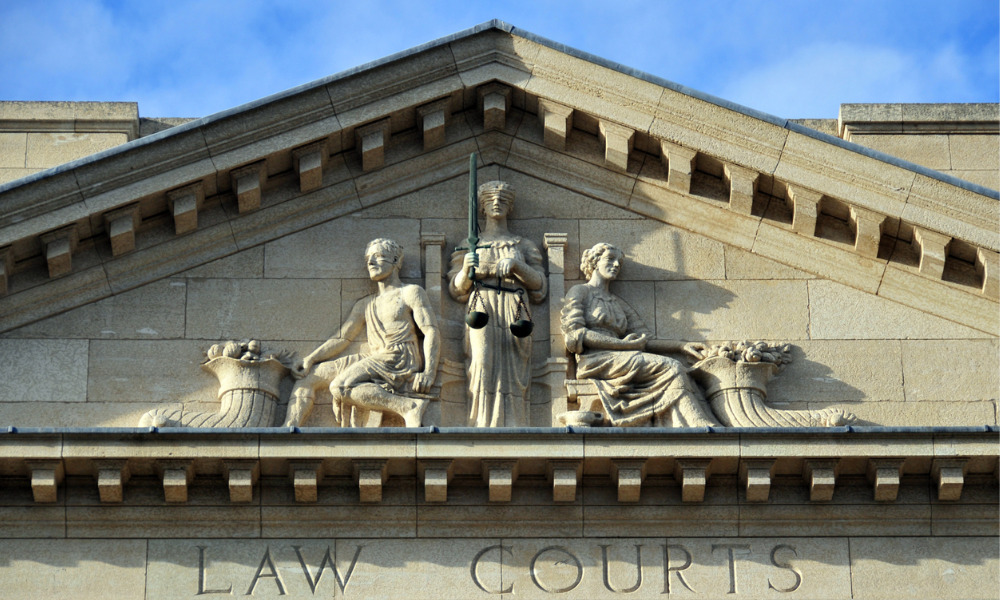Lametti urged to take action by appointing Black, Indigenous, people of colour to federal courts

The Canadian Bar Association has joined 36 other bar associations and legal organizations across Canada in calling for more diversity in judicial appointments.
In a letter to Prime Minister Justin Trudeau and Justice Minister David Lametti, Canadian Bar Association President Bradley Regehr – who on Sept. 1 became the first Indigenous president of the association -- and past president Vivene Salmon, who was the first president of colour, wrote that “It is disconcerting that in 2020 there has never been a BIPOC individual appointed to the Supreme Court of Canada, given the diversity of the legal talent across the country.”
The CBA also urged the federal government to review and revise criteria that create barriers to the appointment of BIPOC candidates, including the requirement of proficiency in both official languages in order to serve on the Supreme Court of Canada. This requirement can exclude “Indigenous candidates, who face systemic barriers to attaining this level of proficiency in both official languages,” wrote Regehr and Salmon, as well as “BIPOC candidates who speak other languages or are unilingual,” depriving “our judiciary of these critical viewpoints.”
“We have concerns that good, qualified candidates will be overlooked because of that [bilingual] requirement,” CBA President Bradley Regehr told Canadian Lawyer. “When seeking nominees from a variety of communities, that requirement can be a barrier to them being appointed to the highest court in the country.”
There will need to be “a balancing” done by the government, says Regehr, in filling two upcoming vacancies on the Supreme Court: those of Justices Rosalie Abella and Michael Moldaver, who will reach the mandatory retirement age of 75 in 2021 and 2022 respectively.
There are several systemic barriers facing Indigenous candidates in meeting the functionally bilingual language requirement for Supreme Court appointments, says Regehr, who belongs to the Peter Ballantyne Cree Nation. Many communities want to prioritize learning their own native languages, most of which are threatened. Other barriers have been faced in the educational system, in the disenfranchisement of Canada’s First Nations, and the undermining of Indigenous cultures.
“Those barriers have a compounding effect,” says Regehr. “I appreciate and respect our bilingual system; but we haven’t had equal importance given to the special status of Indigenous people and their legal traditions.”
Canada has had three legal systems, including its Indigenous legal traditions, since Confederation, he says, “and it seems strange to me that in Canada’s entire history we have never had an Indigenous person on the highest court.”
In its letter the association noted that it was pleased with the government’s commitments to make “transparent, merit-based appointments, to help ensure gender parity and that Indigenous Canadians and minority groups are better reflected in positions of leadership,” and appreciated that the government had modified the federal judicial appointment system in 2016 to increase the diversity of judicial appointments, including by gathering self-identification data and requiring Judicial Advisory Committee members to receive unconscious bias training.
“However, we are concerned that these commitments and changes have not resulted in an appreciably more diverse judiciary to date. Between 2016 and 2019, only three percent of federal judicial appointees self-identified as Indigenous,” and only eight per cent as visible minorities.
The CBA called for greater diversity on the bench several years ago and has “made some good progress with Vivene [Salmon] as the first Black president, and me as the first Indigenous president,” says Regehr.
In an open letter to Minister of Justice and Attorney General of Canada David Lametti, another 36 bar associations and legal organizations noted Chief Justice of Canada Richard Wagner’s comment during an August press briefing that “All Canadians should be able to see themselves reflected in their justice system. Justice should not make a person feel like an outsider or an ‘other’ when they confront it.”
“The legacy of centuries of institutional racism has led to a dominantly white federal bench making decisions governing the actions and behaviours of BIPOC [Black, Indigenous and People of Colour] communities, without ever having experienced the prejudices and racial biases faced by these communities,” the letter read.
It noted that there were only two BIPOC judges on the Federal Court’s current roster of 35 judges and 9 supernumeraries, even though 63 per cent of the Federal Court’s docket deals with immigration, refugee and Indigenous cases.
The signatories – eight bar associations, nine legal organizations and 19 legal clinics – recommended two immediate actions be taken: first, that the six current vacancies on the Federal Court of Canada be filled with BIPOC judges; and second, to “revise the assessment criteria for judicial appointments to recognize systemic barriers that prevent the appointment of BIPOC judges and institute an overarching commitment to appoint BIPOC judges in an effort to overcome the effects of centuries of institutional racism.”
They agreed that the bilingualism requirement presented an obstacle to the appointment of BIPOC judges to the Supreme Court of Canada and recommended that “membership in a BIPOC community be added to the list of characteristics to be considered in assessing candidates. This characteristic should be evaluated on a par with bilingualism in assessing a candidate’s application.”









